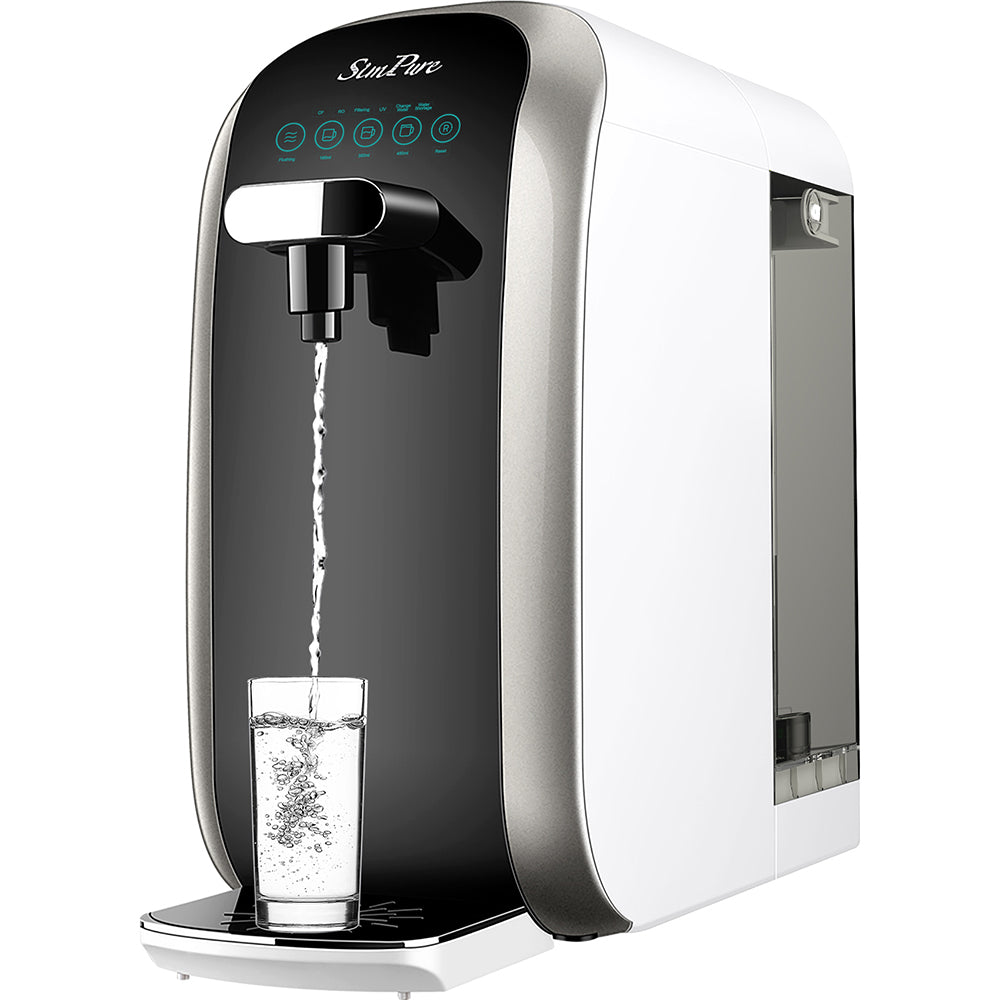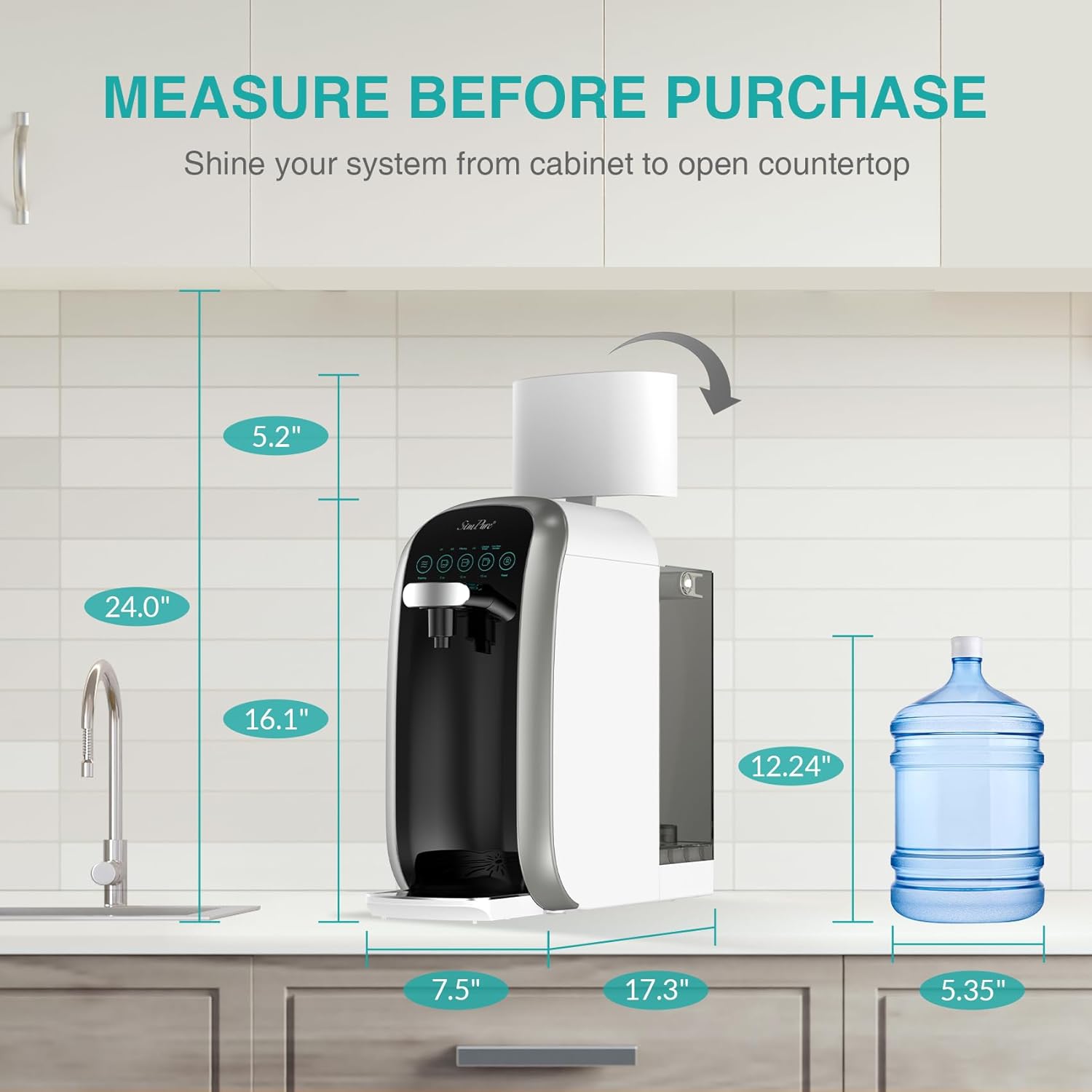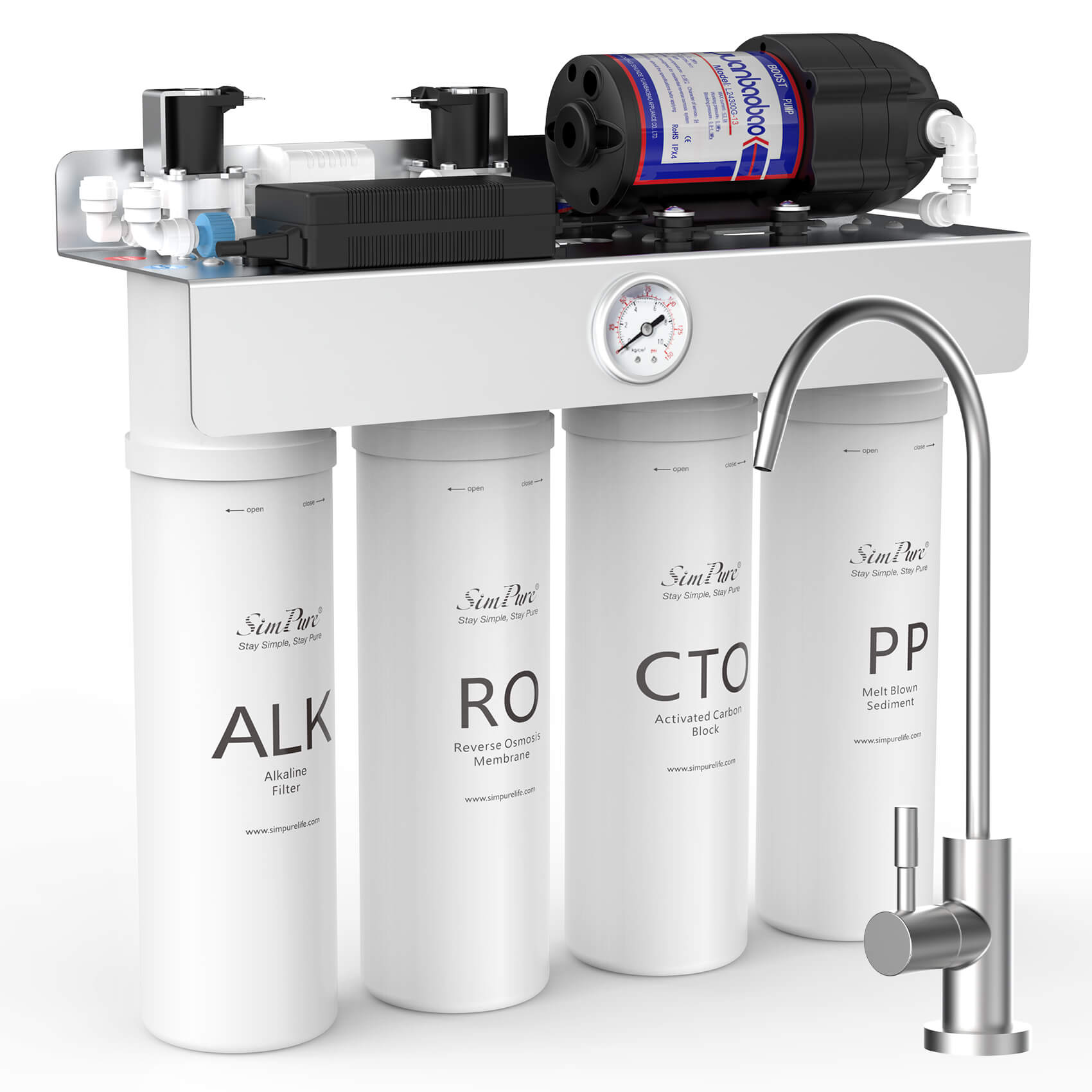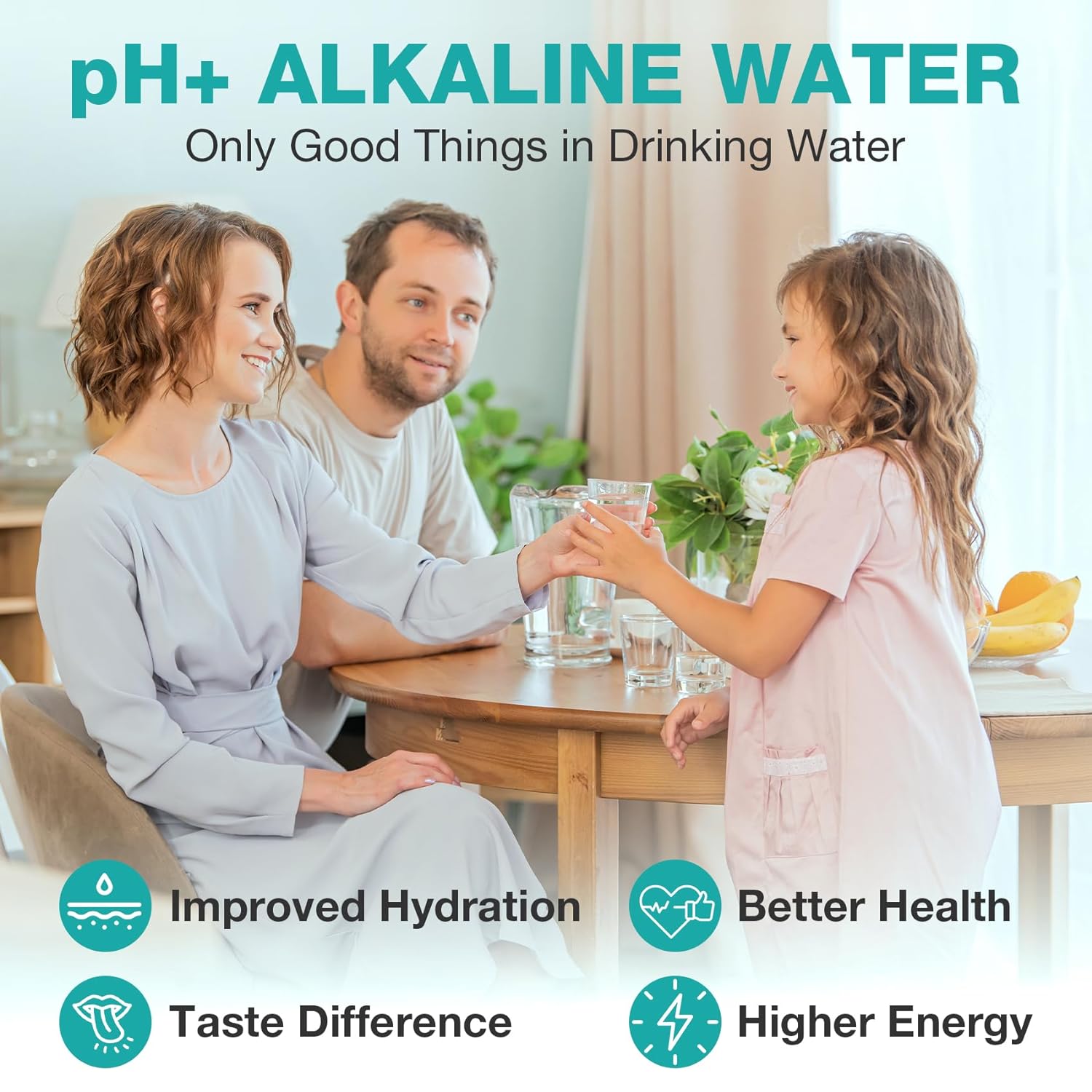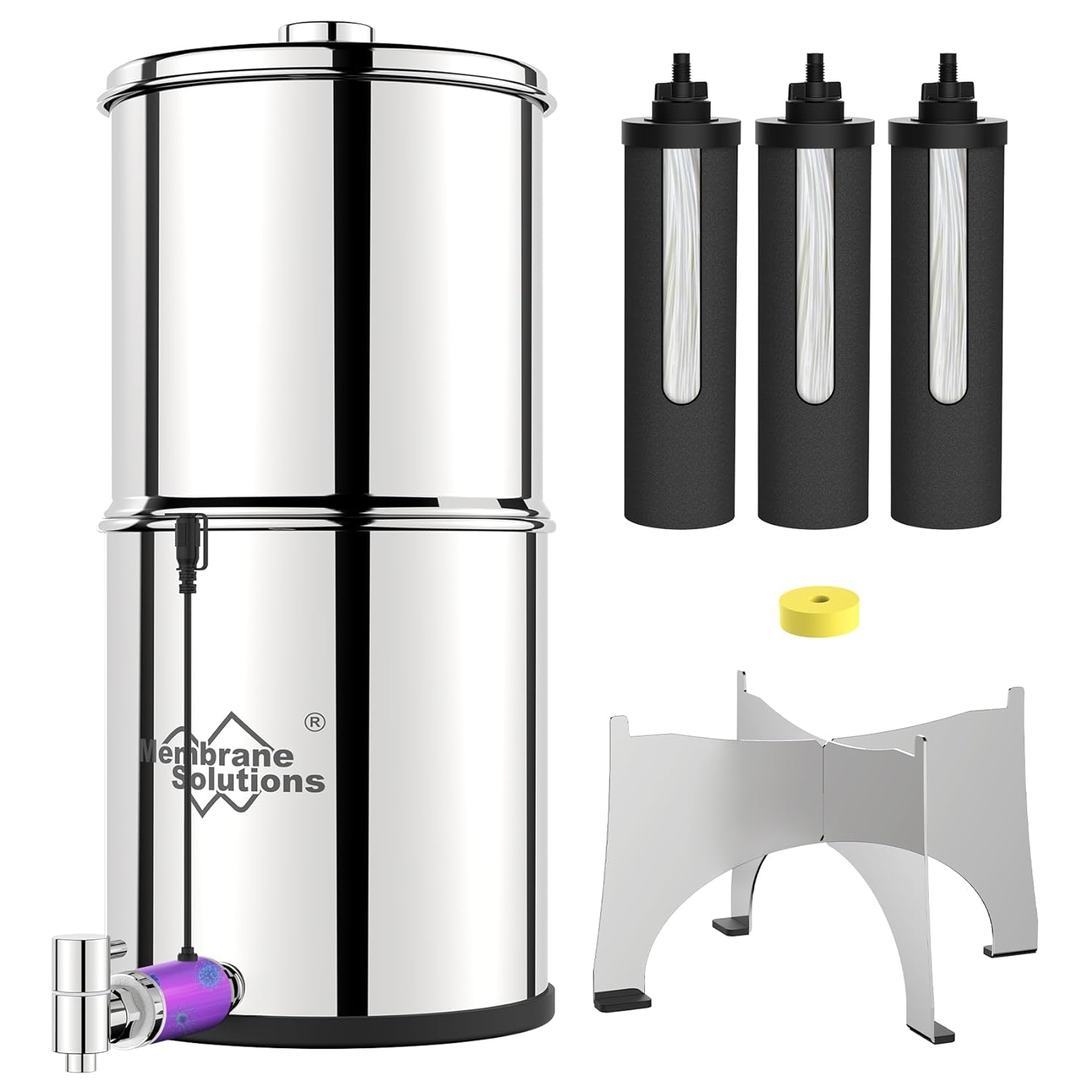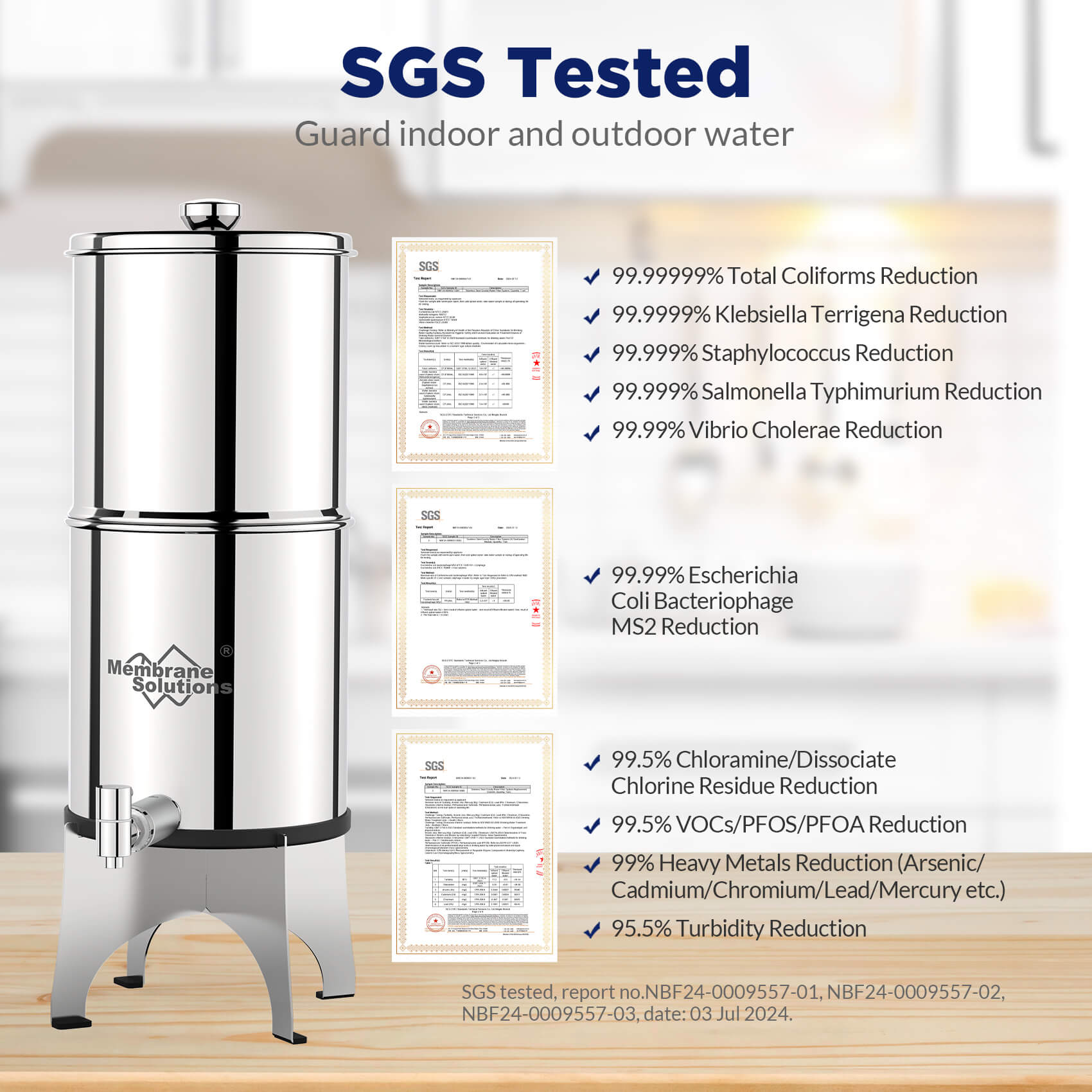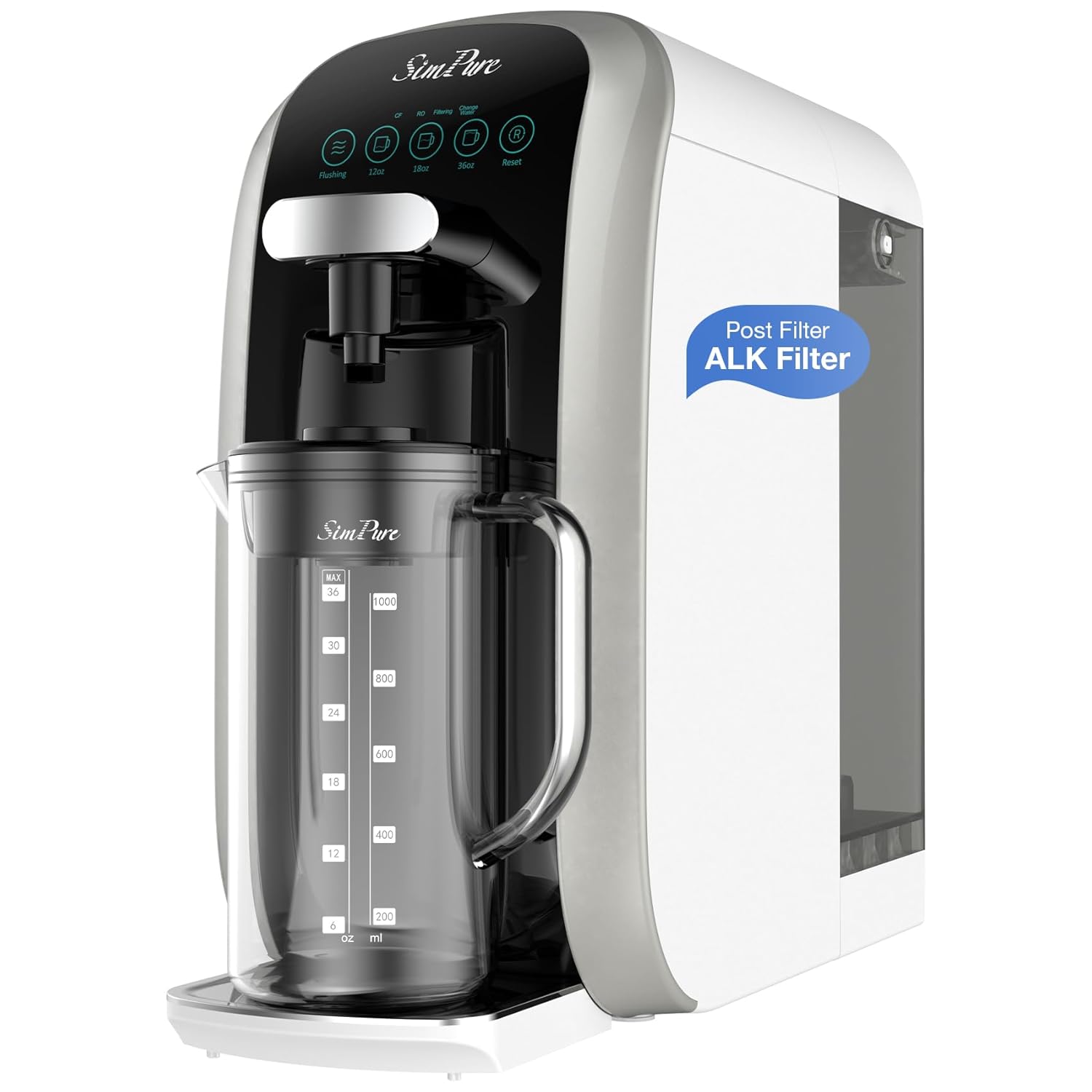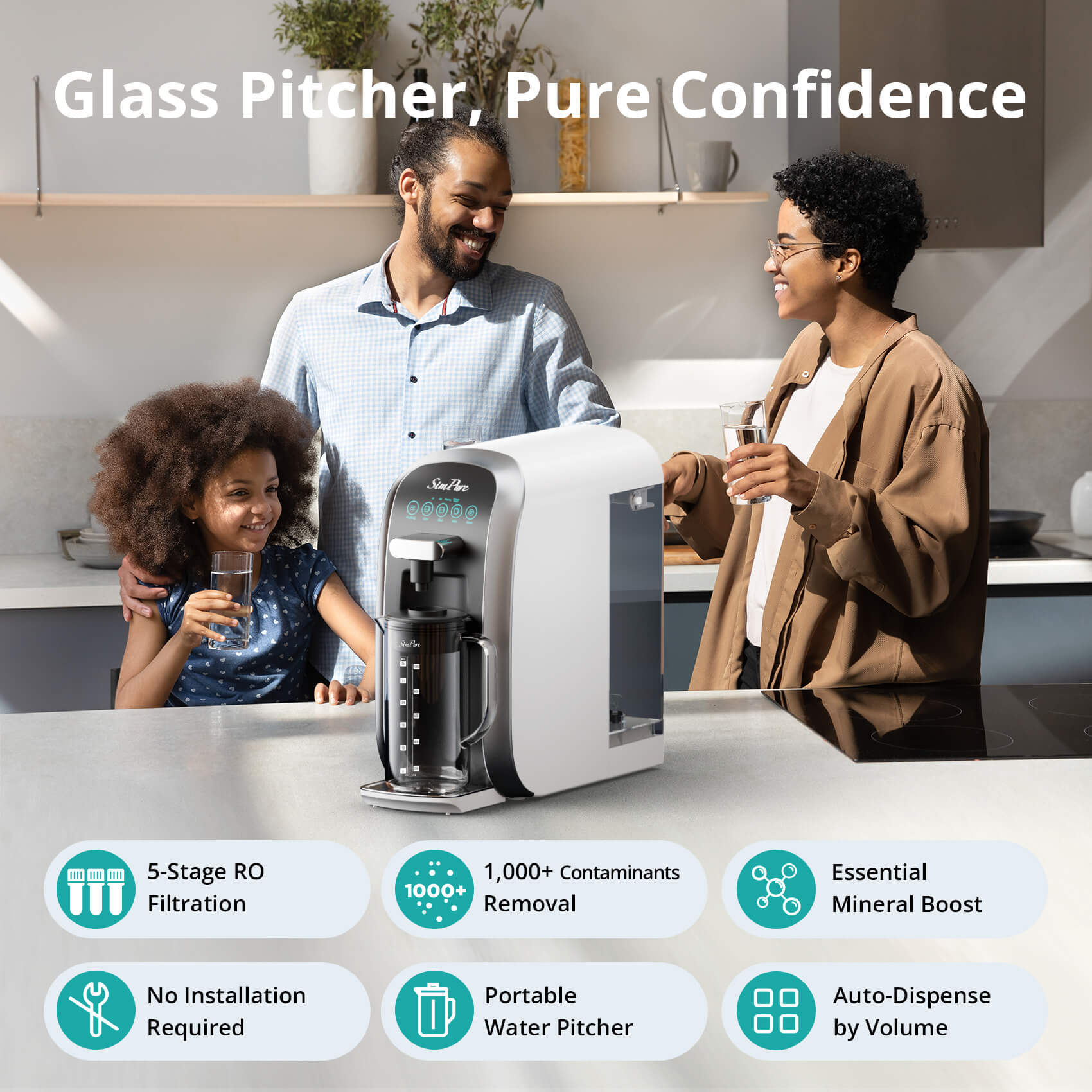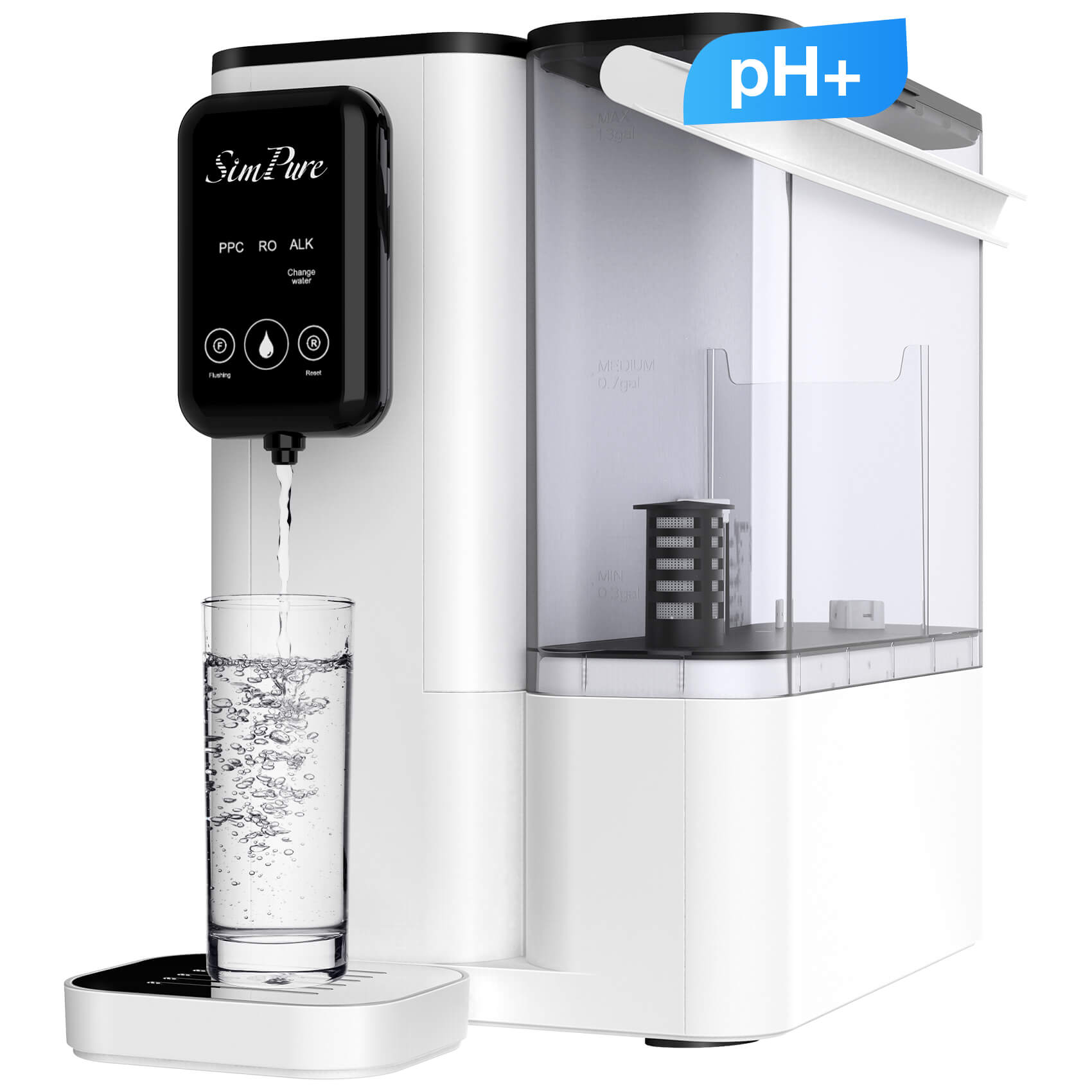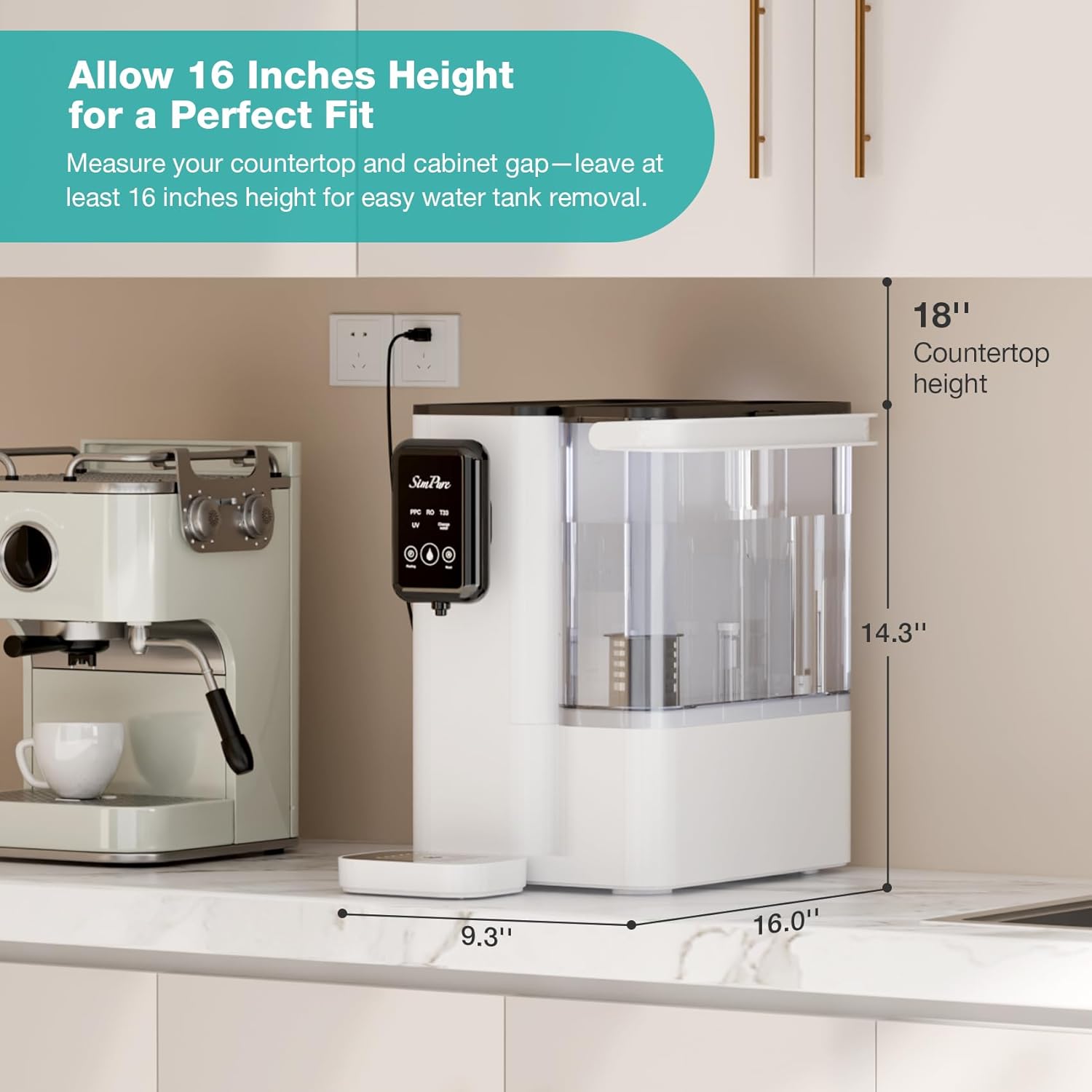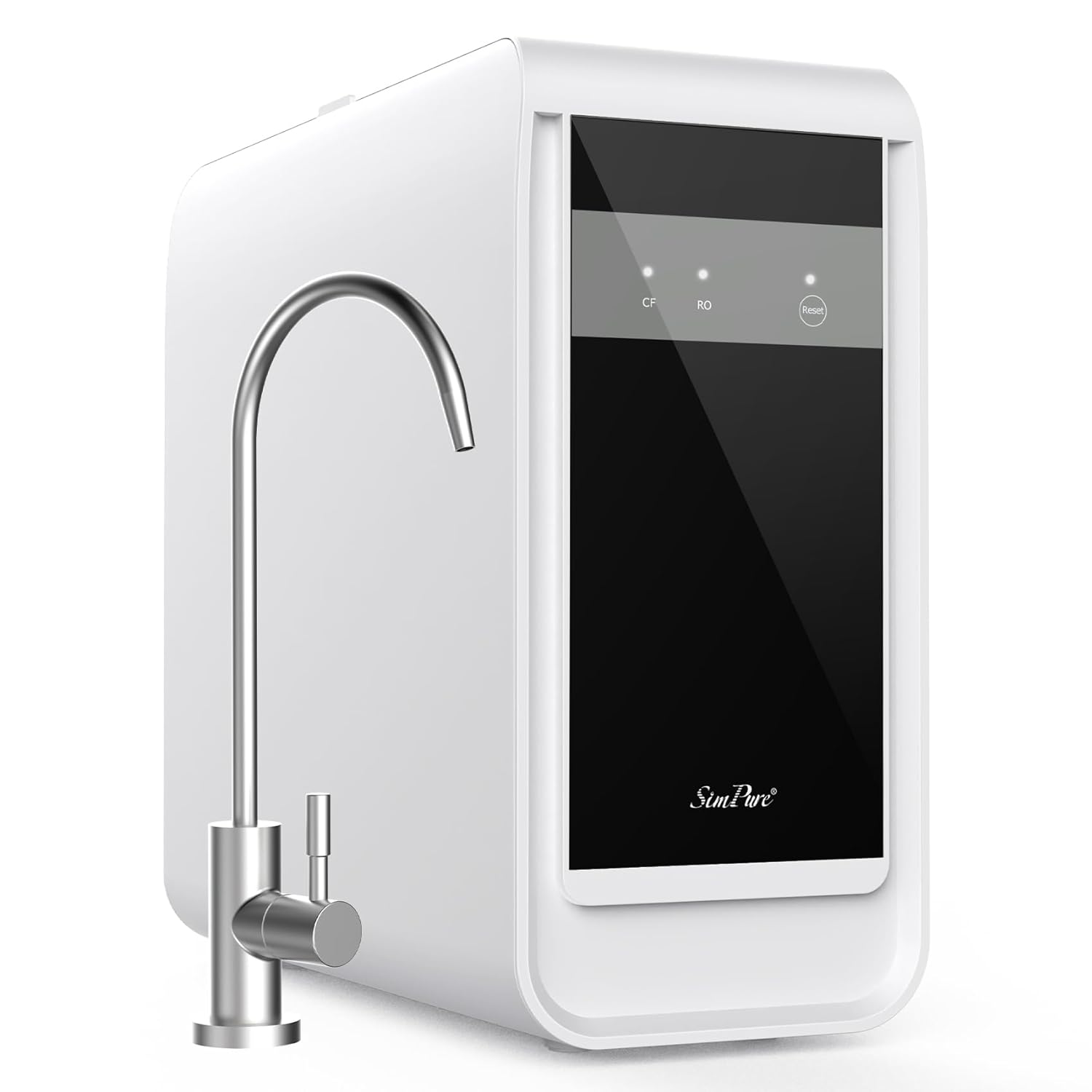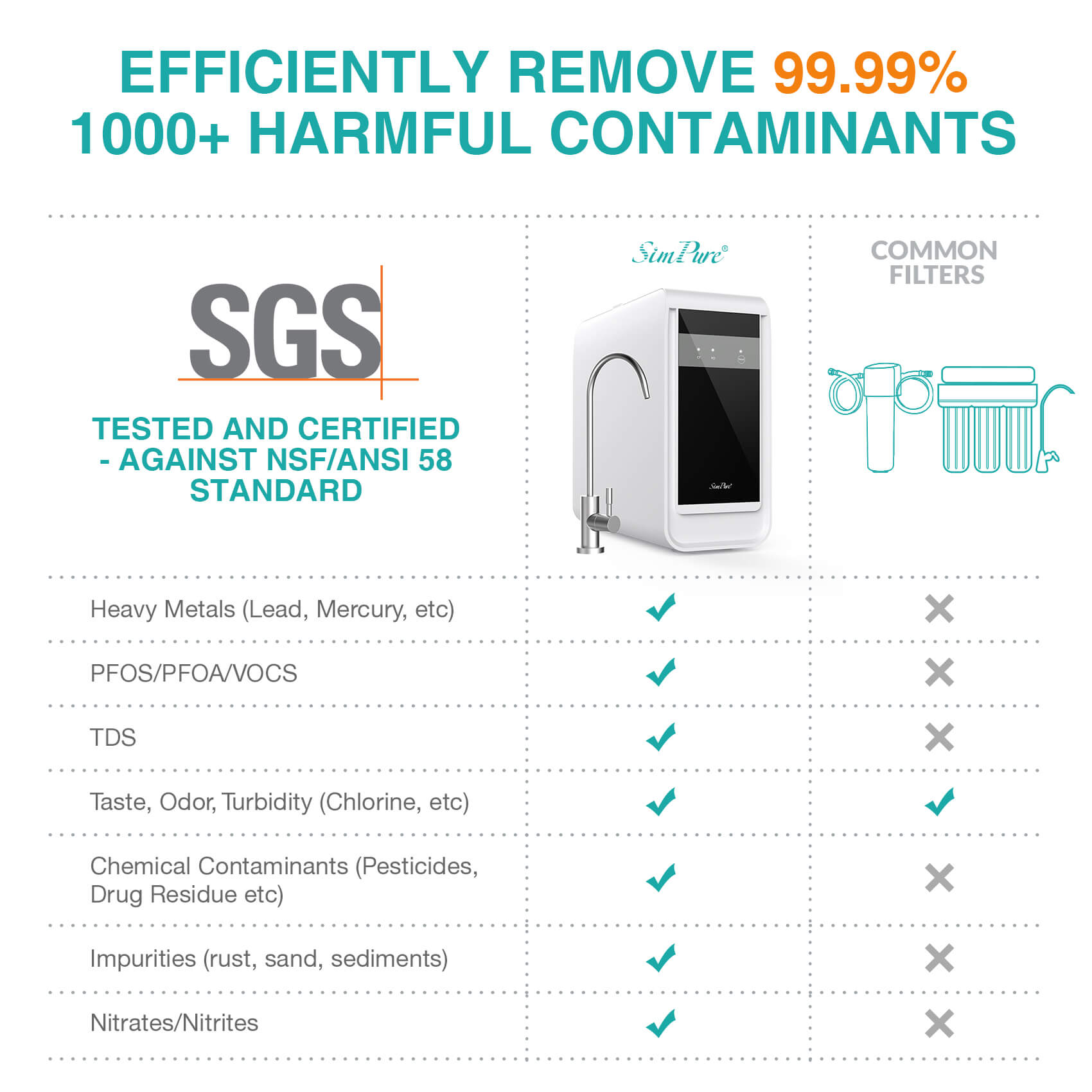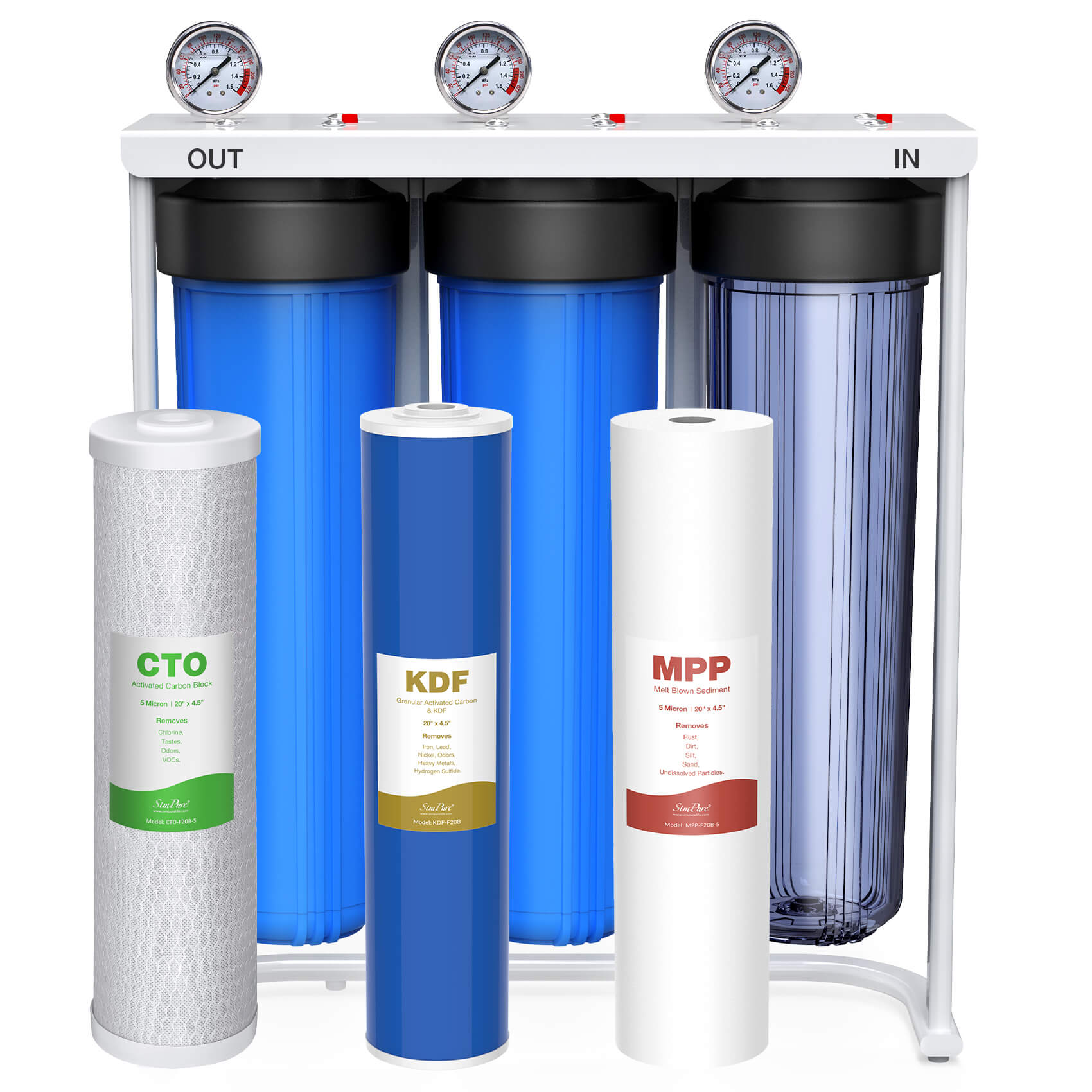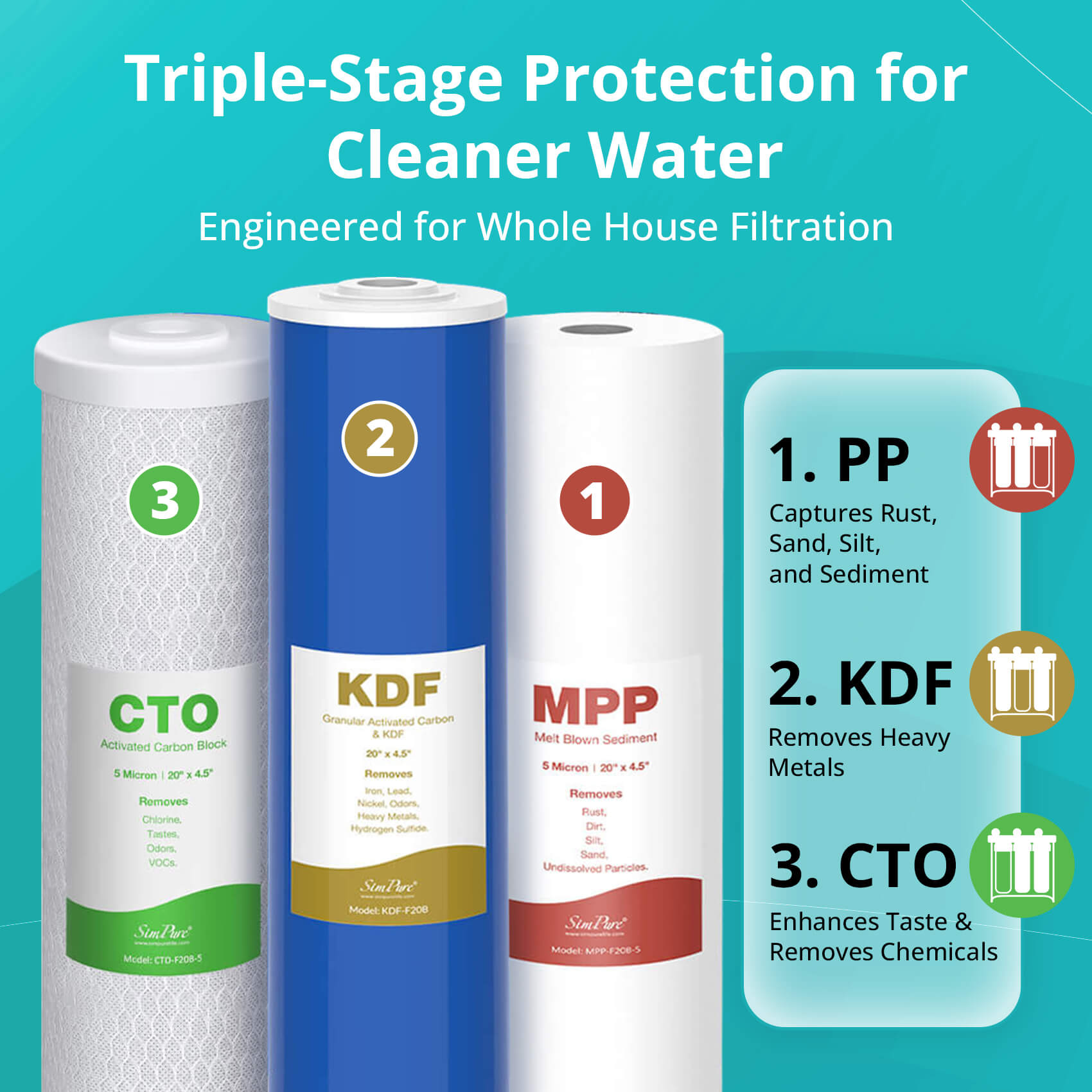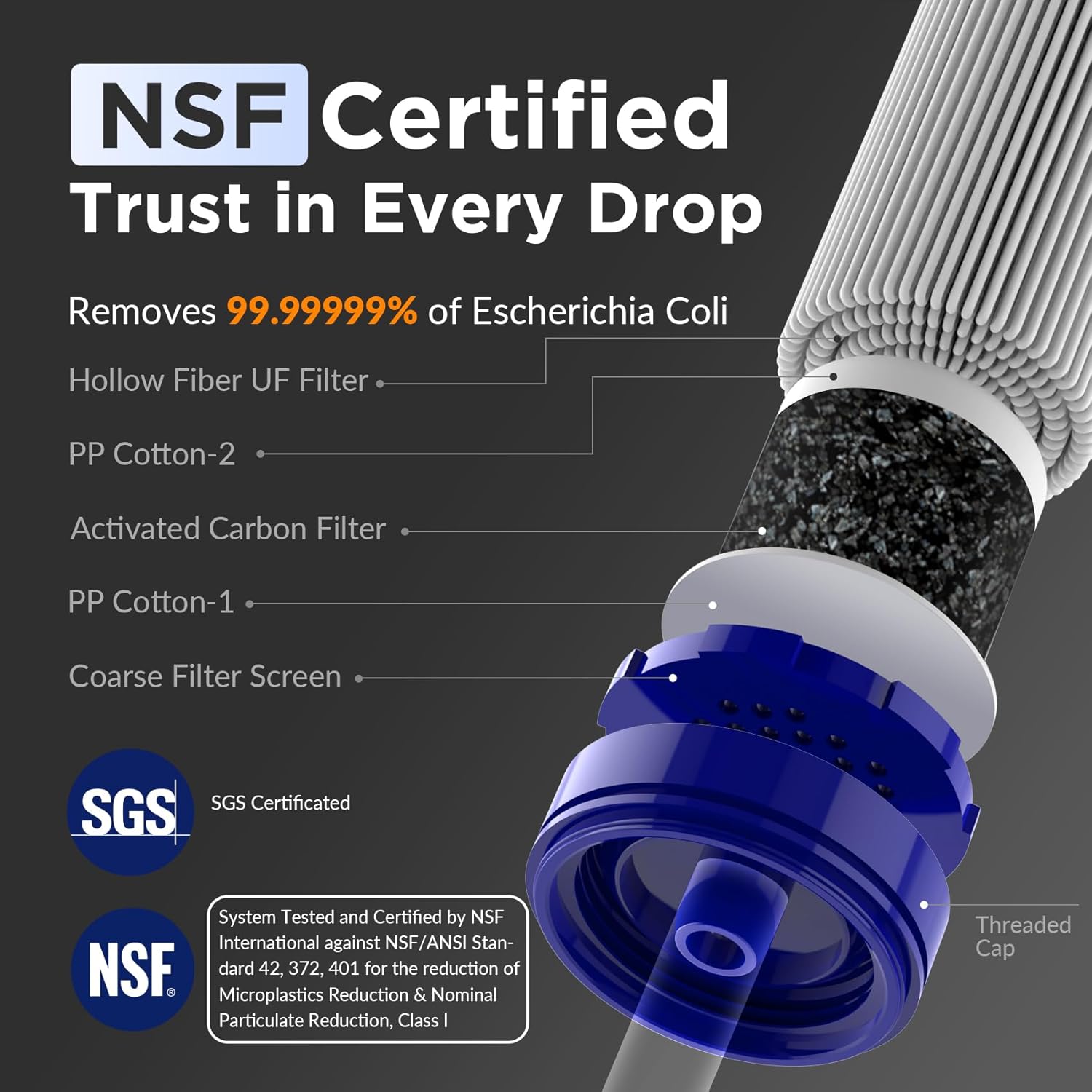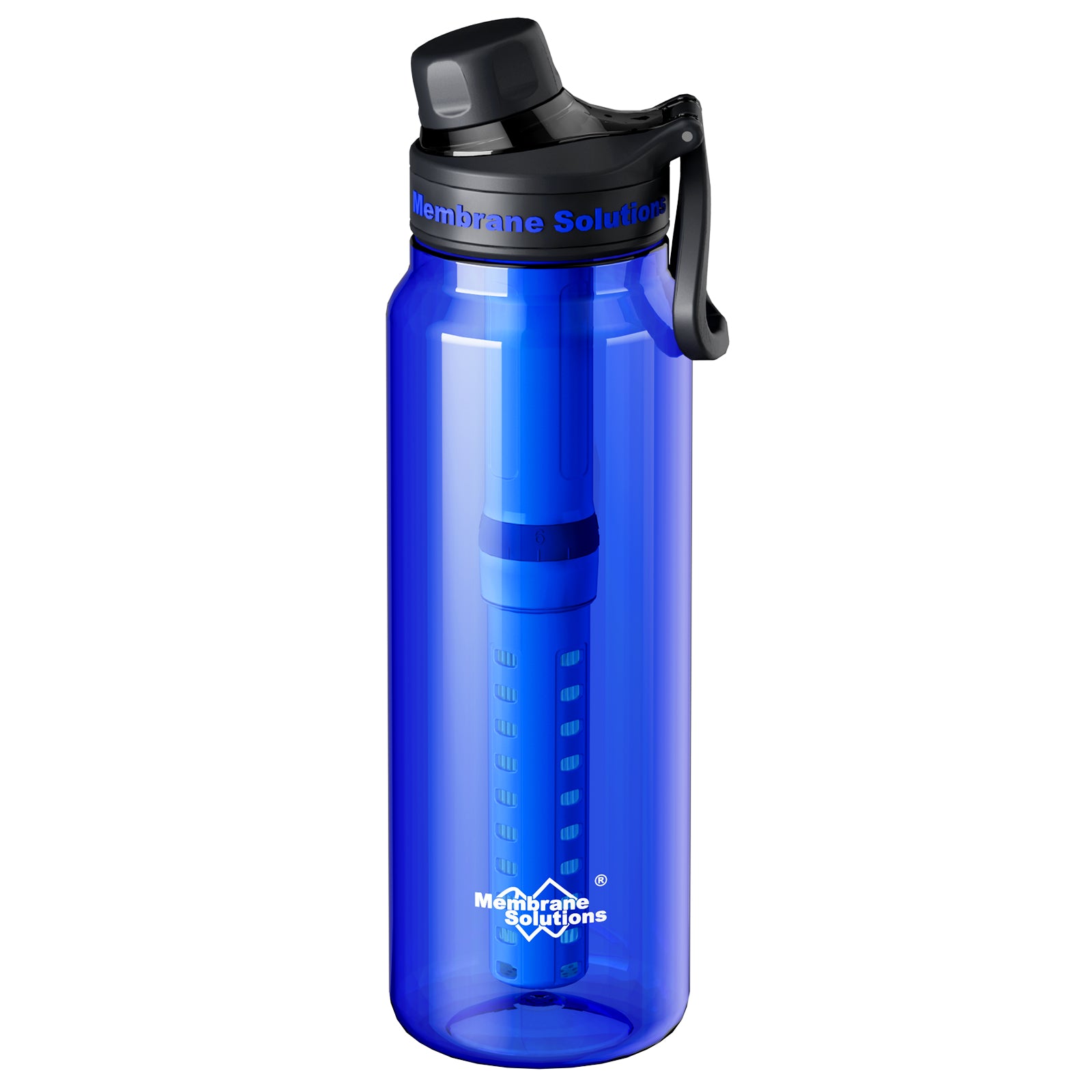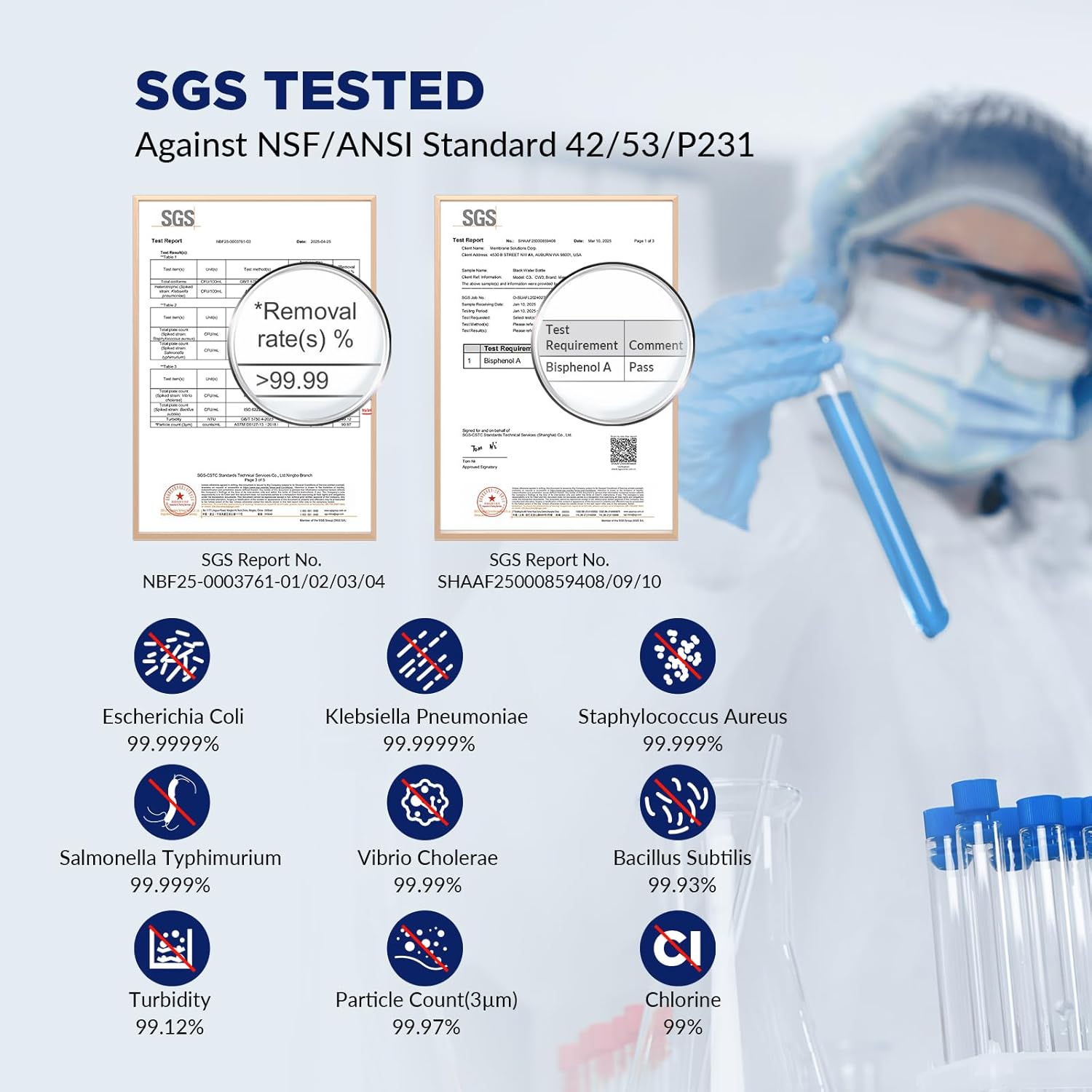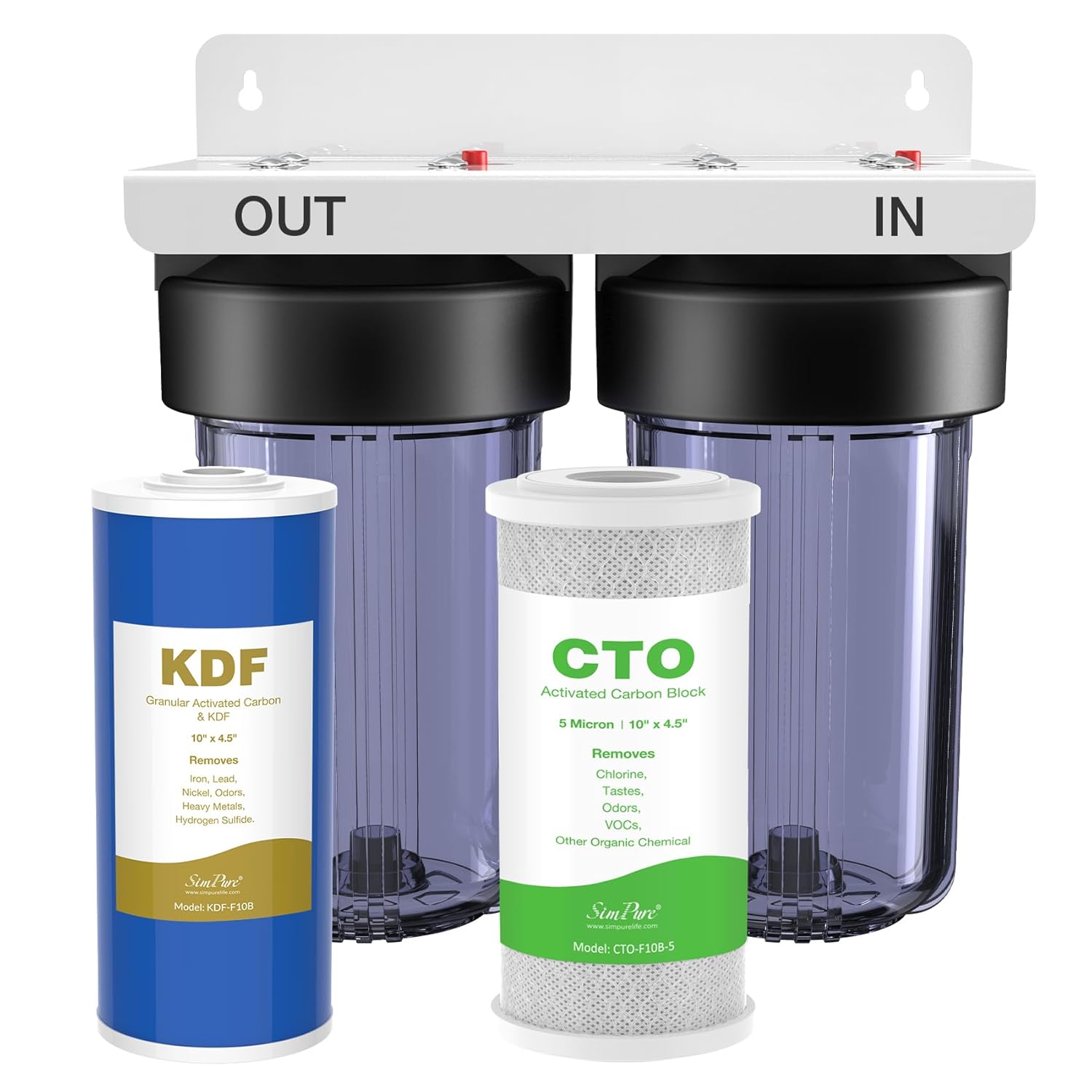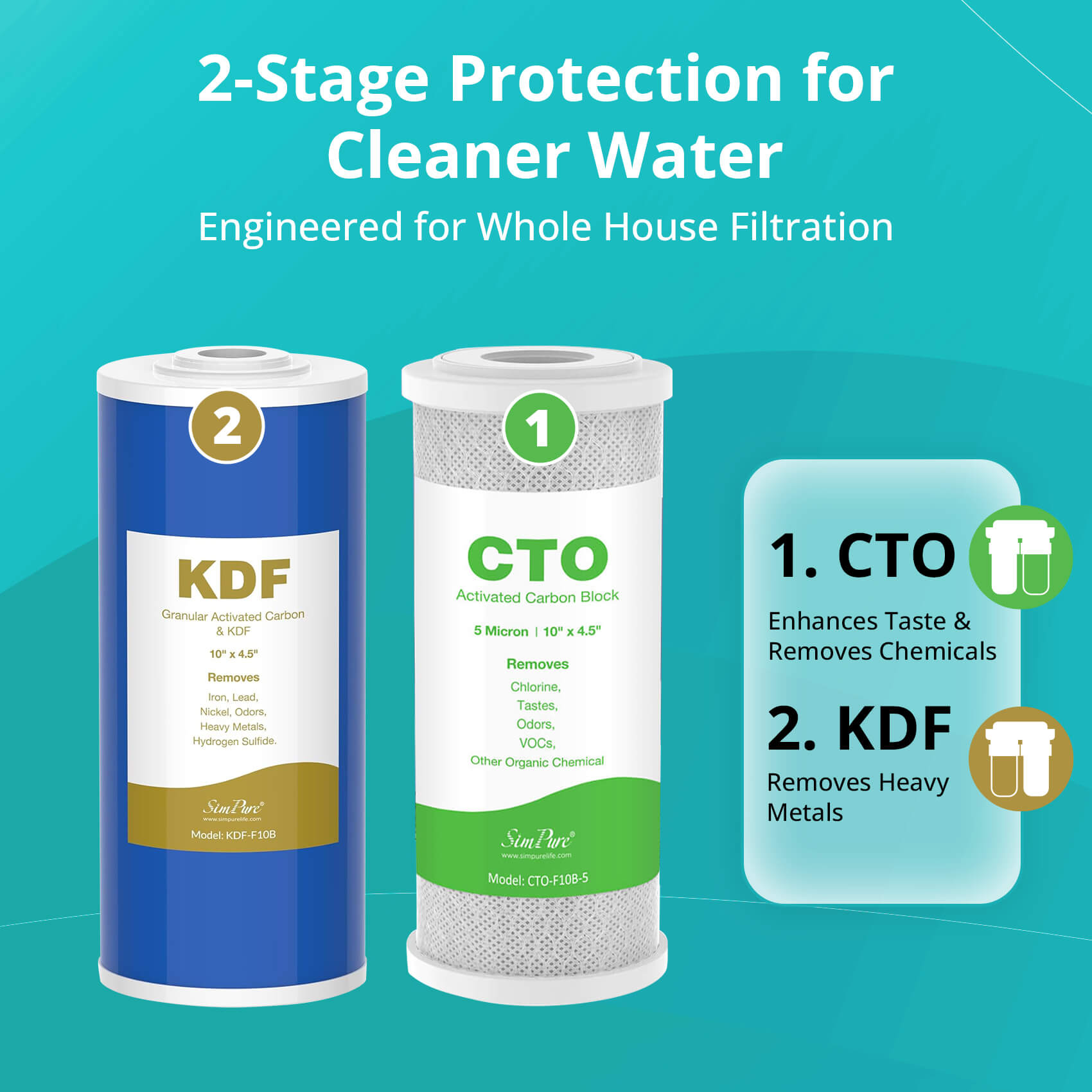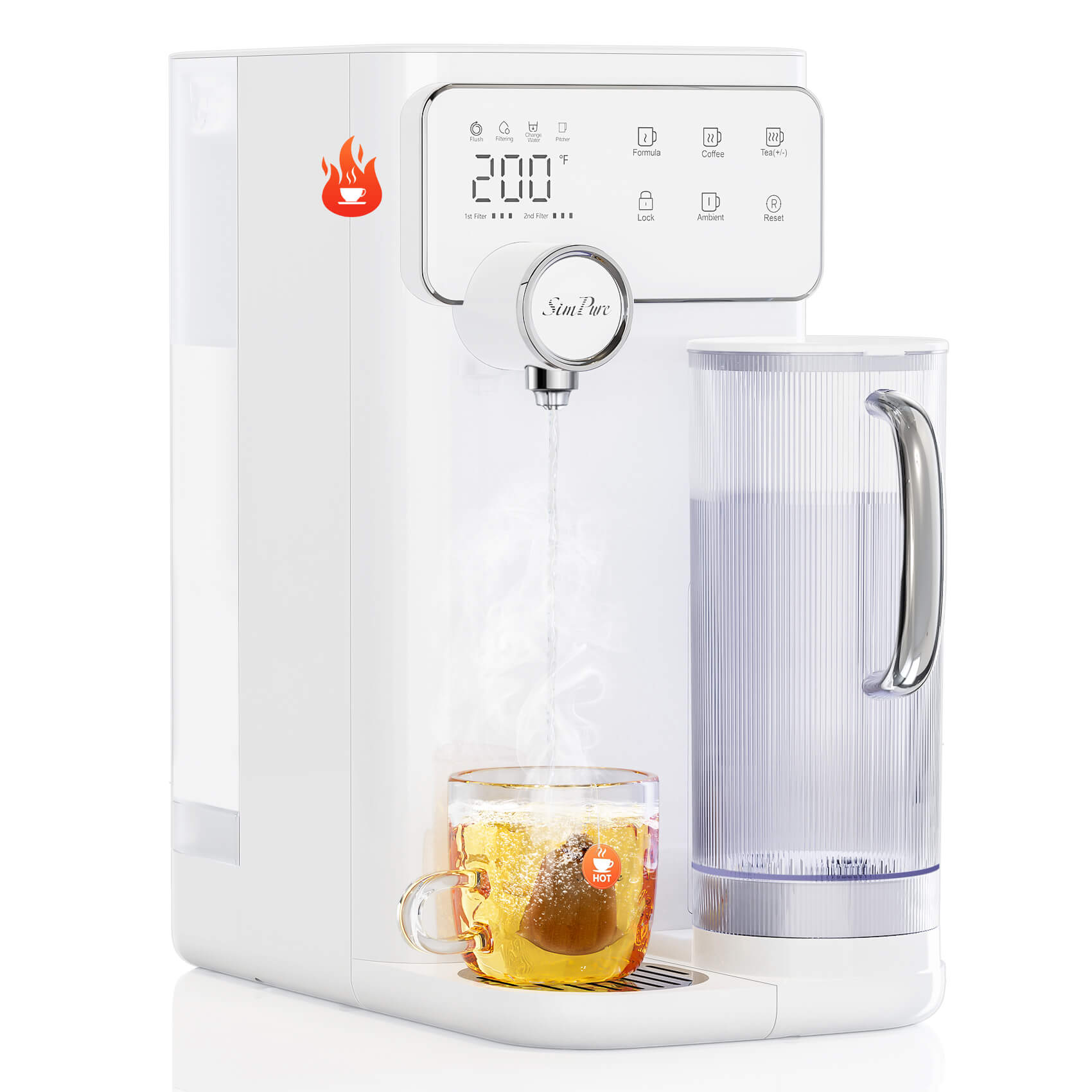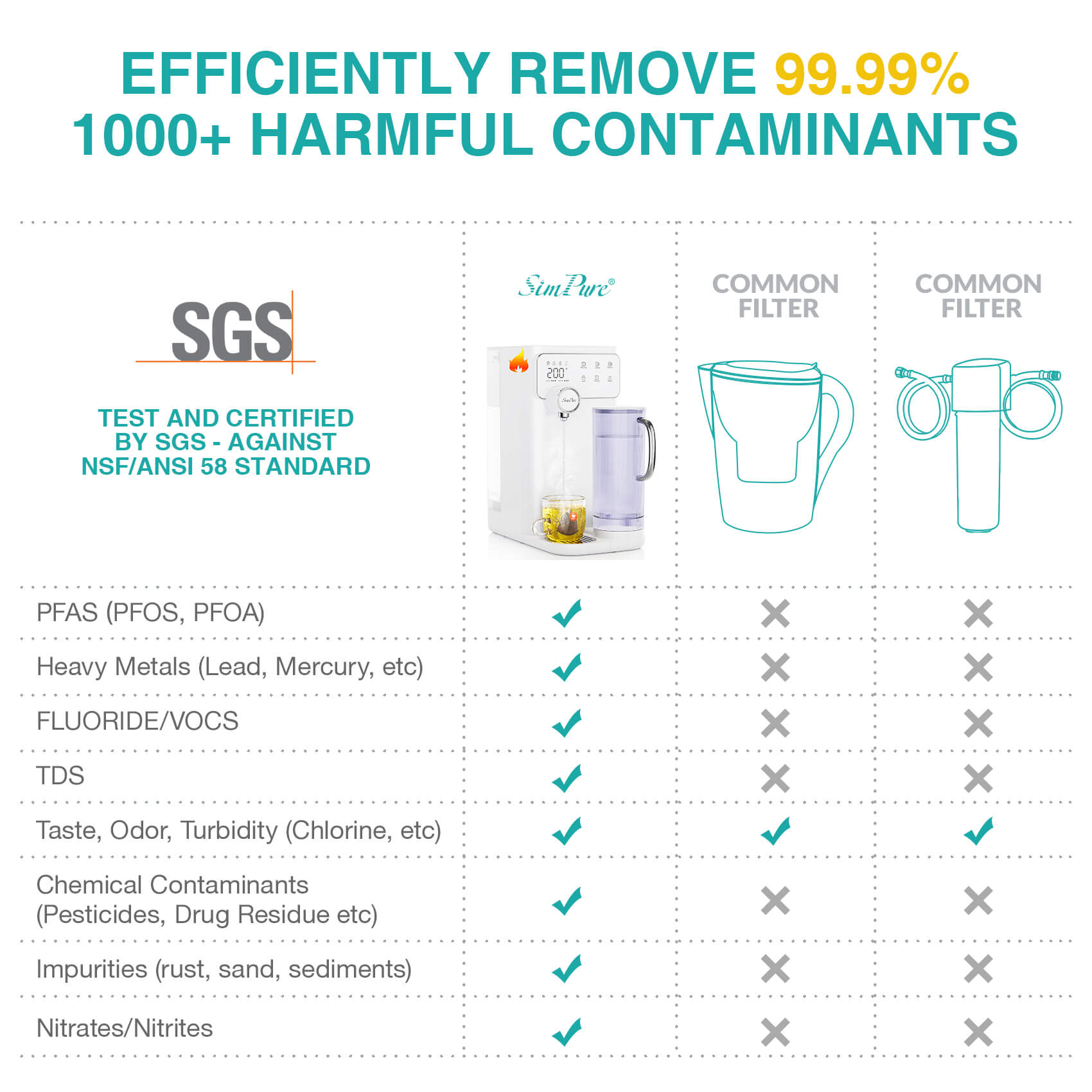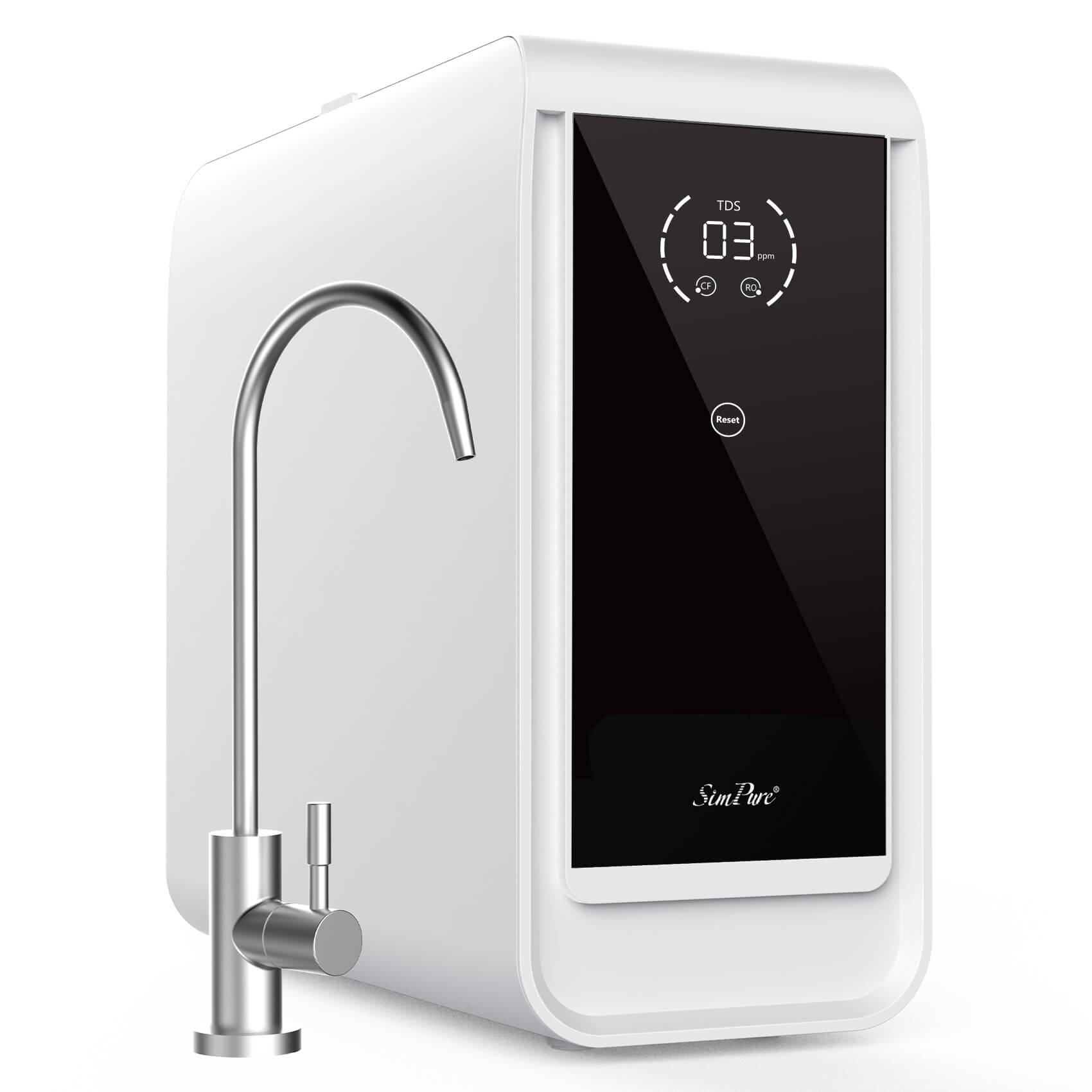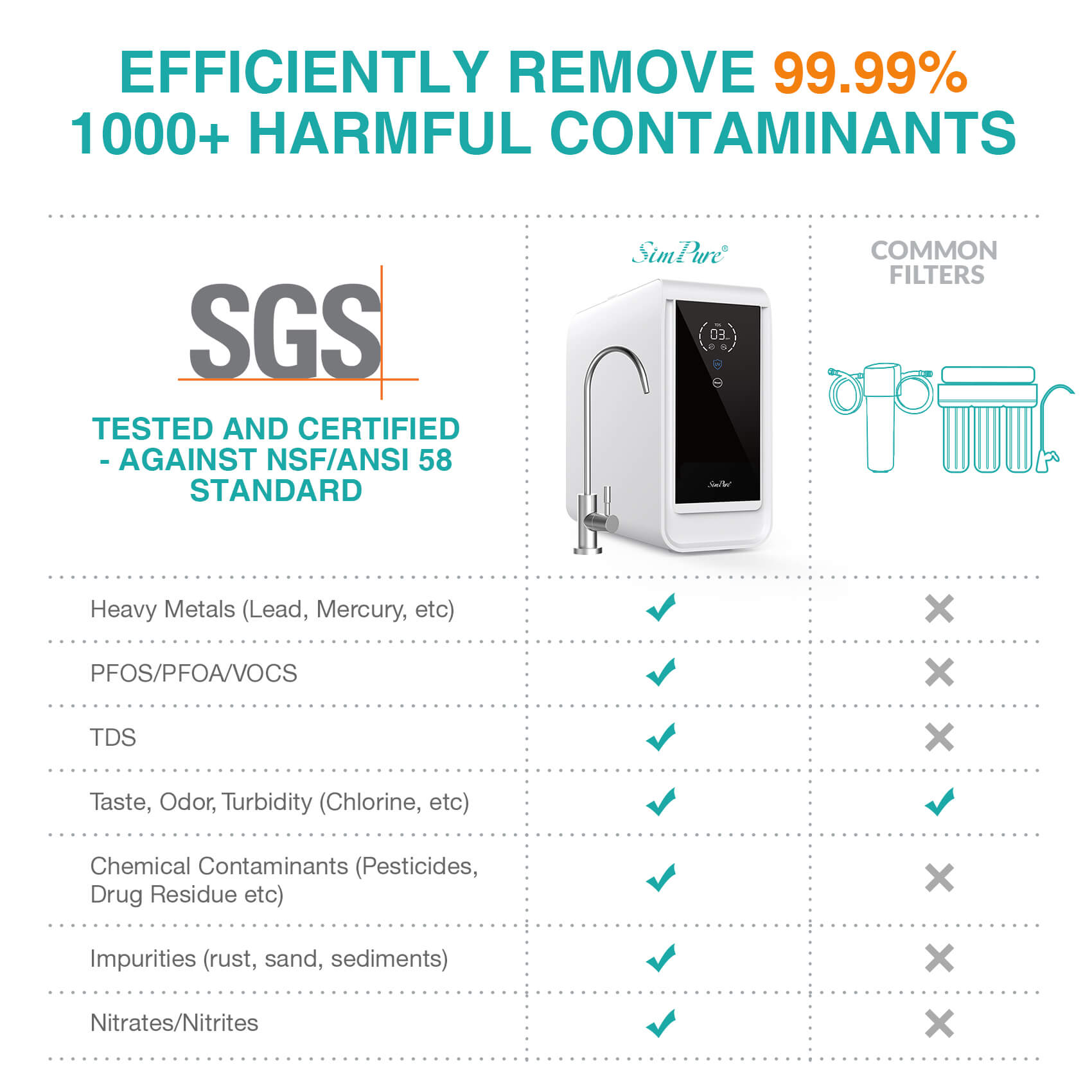You've changed your diet, skincare, and sleep schedule, you've kept your stress to a minimum, and you're still getting those pesky breakouts. After you've tested and changed every other product in your skincare line, there's one factor that most people overlook due to its seeming improbability - hard water. Can hard water cause acne? Yes, water and acne are linked. The focus of this article is to explore the topic of hard water's correlation with the development of acne or pimples. Read fully to get answer to your question does hard water cause acne or pimples and the methods available for managing acne caused by hard water.
What is Hard Water?

In order to properly evaluate the relationship between hard water and acne like does hard water cause acne, it is essential to first gain an understanding of the properties and composition of hard water. Water that contains high amounts of dissolved minerals, such as calcium and magnesium, is known as hard water. It affects your skin and hair over a period of time and may leave a residue on your dishes and clothes. If your home uses hard water, you are at risk of developing unhealthy skin habits that can lead to physical discomfort such as body pain, irritation or inflammation.
Then, Can Hard Water Cause Acne or Pimples?
Now that we know what hard water is, let's focus on answering the question : Does hard water cause acne. Yes, hard water can cause breakouts, pimples, causing acne. In fact, the natural oils react with the minerals in hard water, eventually changing from a pliable substance to a hard, waxy substance that can clog pores. Over time, the buildup of wax in the pores can lead to acne and breakouts or pimples.
When you wash your face, your aim is to remove all the impurities it has acquired throughout the day. And when you wash your face with hard water, you're basically layering it. Hard water makes it difficult for soaps and detergents to dissolve and clean properly the way they were designed.

Not only that, but it prevents the soap from washing off completely, further irritating your skin. Minerals left behind by hard water can dry out your skin, trap bacteria, clog your pores, and possibly end up with unwanted pimples all over your face. Calcium and Magnesium can cause skin oils to turn into comedones and form waxy plugs, clogging pores and causing further breakouts, inflammation, breakouts and irritation.
So if you're acne-prone, washing your face with hard water every time may actually be doing your skin more harm than good. Keep in mind that hard water may exacerbate skin conditions such as eczema or dermatitis, which can in turn make the skin more vulnerable to breakouts, acnes, and pimples.
Other Effects of Hard Water On the Skin?
1. Hard water can cause dry skin. If you experience dry, itchy, irritated skin, hard water may be to blame. In addition to physical symptoms, look for signs like soap scum, limescale, or perform a hard water test to confirm that minerals in the water are the cause of your dry skin.
2. Hard water can cause eczema. Simply put, eczema is a condition in which the skin barrier is weak and easily damaged. Because hard water is able to change the pH of the water, it can further weaken the surface, aggravating the condition for those with eczema and increasing the chances of developing eczema in those who don't already have it.
3. Hard water can cause other skin problems. Hard water strips your skin of its natural oils and leaves a soapy residue that clogs pores and acts as a barrier against moisturizers and lotions.
How to Treat Acne Caused By Hard Water?-Already Happened
As mentioned above, we get the specific answer YES of can hard water cause acne, so how to treat acne that is already caused by hard water? To treat acne that is already caused by hard water, you can take some of the following methods:
1. Cleanse your skin gently: Use a gentle cleanser to wash your face twice a day to remove any impurities and excess oil from your skin. Avoid using harsh scrubs or exfoliators that can further irritate the skin.
2. Use topical treatments: Apply topical treatments such as benzoyl peroxide or salicylic acid to help unclog pores and reduce inflammation. These treatments are available over-the-counter and can be found in gels, creams, or cleansers.
3. LED phototherapy. Different wavelengths of light target different problems. Blue light kills P bacteria, the bacteria that cause most acne breakouts. The red light is anti-inflammatory and collagen-stimulating, helping to heal any breakouts you may currently have and improving the overall texture and appearance of your skin.
4. Consult a dermatologist: If your acne persists or becomes severe, consider consulting a dermatologist. They can prescribe stronger topical treatments or oral medications, laser to help control your acne and reduce inflammation.
So How to Prevent Acne Caused by Hard Water?
If you are just afraid of hard water causing acne and didn't get acnes, pimples and breakouts, you can prevent it by these ways:
1. Avoid touching your face: Touching your face can transfer bacteria and oil from your hands to your skin, which can contribute to acne. Try to avoid touching your face as much as possible.
2. Install a water softener, which filters out naturally hardening minerals such as calcium and magnesium, allowing your skin pores to breathe and drain its natural oils. However, it's important to note that a water softener may not be as effective at removing other types of minerals and salt.
3. Install a Reverse Osmosis System to filter your hard water. Using an RO system to filter out hard water can prevent acne by removing minerals that clog pores and irritate skin. It improves water quality, reduces soap residue, and prevents dryness, keeping skin healthy and hydrated. RO filtered water can help reduce impurities that contribute to acne breakouts, making it a useful solution for those with acne-prone skin.
Here we recommend SimPure T1-400 UV tankless reverse osmosis system water filter for you. It has been tested and certified by SGS. With Best Upgraded 8-Stage Tankless RO+UV Water Filter Filtration System, the purification effect can remove up to 99.99% of chlorides, chemicals, heavy metals, TDS (a large amount of dissolved substances, such as calcium and magnesium), viruses and more than 1,000 other contaminants. Washing your face with filtered water will do more good than harm to your skin and is the most effective way to treat acne problems caused by hard water.
To sum up, can hard water cause acne? Unfortunately, it is. Hard water contains high amounts of naturally occurring minerals such as calcium and magnesium that cannot properly dissolve detergent, soap or any other cleaning product. Therefore, soap residue on the skin can cause skin sensitivity, dryness and clogged pores.To get rid of the worries of hard water causing acne, consider getting a SimPure T1-400 UV RO water filter now!



